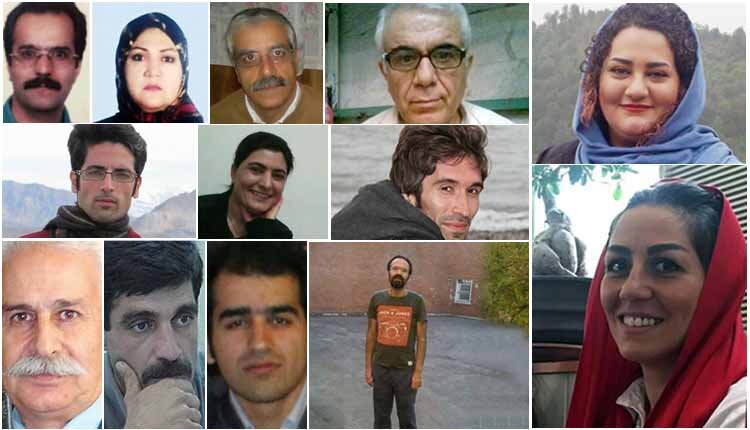A spokesman for Iran’s Judiciary says there are no political prisoners in Iran.
Gholamhossein Esmaili made the claim at a live televised program, after being asked about the recent death of a political prisoner murdered in Tehran’s notorious Fashafuyeh Prison and why political prisoners were not separated from ordinary criminals.
“Those who sometimes claim (to be political prisoners) are those who have committed crimes against security,” Esmaili said.
He also referred to political prisoners affiliated with the MEK adding that these dissident groups were working against “the system and the revolution” and were not political prisoners.
Esmaili also tried to cover up the regime’s responsibility for the death of 21-year-old Alireza Shir Mohammad Ali, who was stabbed to death by two prisoners on June 10.
Shir Mohammad Ali was sentenced to eight years behind bars on the security charges of “blasphemy,” “insulting the founder of the Islamic Republic,” “insulting the leader” and “spreading propaganda” against the regime.
At the time of his death, he was on hunger strike to protest prison conditions.
His mother and his cellmate believe that Alireza Shir Mohammad Ali was killed upon orders of prison officials.
Other officials of the Iranian regime have also denied the existence of political prisoners in Iran time and again.
Earlier in February 2019 the former Judiciary Chief Sadeq Amoli Larijani claimed that that Iran has any political prisoners even as thousands of political prisoners languished in Iranian jails.
In a meeting with Judiciary officials in Tehran on February 4, Amoli Larijani said that “We currently do not have such prisoners.”
Several activists on social media explained that time that the Judiciary’s jargon for “political prisoners” is “security prisoners.”
International human rights watchdogs have observed that most political activists in Iran are charged with “acting against security,” possibly because the government does not want to be criticized for having “political prisoners.”
Amoli Larijani said that “acting against security is different from political offenses defined in the law,” adding that these are two different offenses ,and different legal procedures apply to those who are accused of such offenses.
Prior to this, Foreign Minister Mohammad Javad Zarif told reporters during one of his visits to the United States that “No one is imprisoned in Iran for his or her beliefs.”
According to a Human Rights Watch 2018 report on Iran, there are currently about one thousand political prisoners in Iran. These include political prisoners affiliated with various political groups, as well as journalists, hundreds of members of religious minorities including Bahais, dervishes and those who have converted into Christianity.
Meanwhile, the Iranian Judiciary has been refusing to carry out the Political Offence Law that was ratified by the Iranian Parliament two years ago. Because of the Judiciary’s refusal to accept detainees as political prisoners, they are usually tried at revolutionary courts, where rules and regulations are even stricter and sanctions are harsher than the courts of justice.
Most recently, a 28-year-old detainee from the Ahvazi Arab minority, died under suspicious circumstances in a detention centre in Ahvaz, in south western Iran.
Benyamin Albughbiesh, died after less than a month in custody. His body has not been returned to his family, even though they were informed of his death on June 26.
Philip Luther, Research and Advocacy Director for the Middle East and North Africa at Amnesty International, said: “Benyamin Alboghbiesh was a healthy young adult when he was arrested. His alarming death just over a month later raises serious concerns about his treatment and conditions of detention, including the possible use of torture. The Iranian authorities must immediately order an effective and impartial investigation into his death, including an independent autopsy.”











